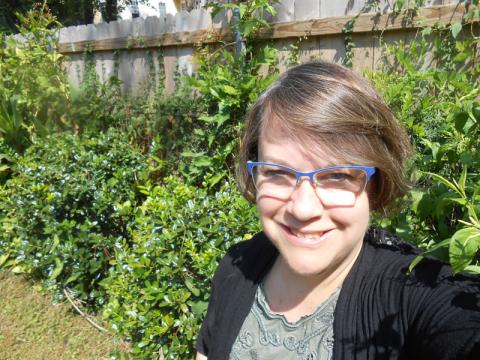Dr. Murray's research programs follow two themes: 1) The consequences of a disease-avoidance motive for interpersonal relationships, social attitudes, personality, and cultural differences, and 2) The dynamics of new interpersonal relationships—the individual differences that predict formation, stability, and satisfaction in new romantic relationships, and the implications of these relationships for physiology and health.
Office
3067 Percival Stern Hall
Selected Publications
Kerry, N., Murray, D. R., Harman, J., & McCord, J. (in press). Political results: Outcomes of sporting events affect egalitarian attitudes and ingroup evalauations. Self and Identity. doi.org/10.1080/15298868.2020.1733070
Kerry, N., & Murray, D. R. (in press). Politics and parenting. In V. A. Weekes-Shackelford &T. K. Shackelford (Eds.), The Oxford Handbook of Evolutionary Psychology and Parenting. Oxford, UK: Oxford University Press.
Kerry, N., & Murray, D. R. (2020). Politics and parental care: Experimental and mediational tests of the causal link between parenting motivation and social conservatism. Social Psychological and Personality Science, 11, 284-292. doi.org/10.1177/1948550619853598
Murray, D. R., *Prokosch, M., & *Airington, Z. (2019). PsychoBehavioroImmunology: Connecting the behavioral immune system to its physiological foundations. Frontiers in Psychology, 7, 10:200. 10.3389/fpsyg.2019.00200
Murray, D. R., Haselton, M. G., Fales, M. R., & Cole, S. W. (2019). Falling in love is associated with immune system gene regulation. Psychoneuroendocrinology, 100, 120- 126. doi.org/10.1016/j.psyneuen.2018.09.043
Kerry, N., *Loria, R. N., & Murray, D. R. (2019). Gluttons for punishment? Experimentally- induced hunger unexpectedly reduces harshness of suggested punishments. Adaptive Human Behavior and Physiology, 5, 352-370. 10.1007/s40750-019-00121-4
Kerry, N., & Murray, D. R. (2019). Is formidability associated with political conservatism? Evolutionary Psychological Science, 5, 220-230.Murray, D. R., Haselton, M. G., Fales, M. R., & Cole, S. W. (2019). Subjective social status and health-related gene expression. Health Psychology, 38, 182-186. dx.doi.org/10.1037/hea0000705
Murray, D. R., *Kerry, N. T., & Gervais, W. (2019). On Disease and deontology: Multiple tests of the influence of disease threat on moral vigilance. Social Psychological and Personality Science, 10, 44-52. doi.org/10.1177/1948550617733518
Kerry, N., & Murray, D. R. (2018). Conservative Parenting: Investigating the relationships between parenthood, moral judgment, and social conservatism. Personality and Individual Differences, 134, 88-96. doi.org/10.1016/j.paid.2018.05.045
Ackerman, J. M., Hill, S. E., & Murray, D. R. (2018). The behavioral immune system: Current concerns and future directions. Social and Personality Psychology Compass, 12:e12371. doi.org/10.1111/spc3.12371
Magee, C., Buchtel, E. E., Human, L. J., Murray, D. R., & Biesanz, J. C. (2018). Is personality variability associated with adjustment? Journal of Research in Personality, 72, 22-43. doi.org/10.1016/j.jrp.2016.08.005
Kerry, N., & Murray, D. R. (2018). Strong personalities: Investigating the Relationships between Grip Strength, Self-perceived Formidability, and Big Five Personality Traits. Personality and Individual Differences, 131, 216-221. doi.org/10.1016/j.paid.2018.05.003
Van de Vliert, E., & Murray, D. R. (2018). Climate and creativity: Cold and heat trigger invention and innovation in richer populations. Creativity Research Journal, 30, 17-28. doi.org/10.1080/10400419.2018.1411571
Murray, D. R., Murphy, S. C., von Hippel, W., Trivers, R., & Haselton, M. G. (2017). A preregistered study of competing predictions suggests that men do overestimate women’s sexual intent. Psychological Science, 28, 253-255.
Murray, D. R., Fessler, D. M. T., Kerry, N., White, C., & Marin, M. (2017). The kiss of death: Three tests of the relationship between disease threat and ritualized physical contact within traditional cultures. Evolution and Human Behavior, 38, 63-70. http://dx.doi.org/10.1016/j.evolhumbehav.2016.06.008
Murray, D. R. (2017). Essentializing politics: If perceptions of politics become genetically essentialized, what will be the consequences? Social Cognition, 35, 475-495.
Murray, D. R., Gildersleeve, K. A., Fales, M. R., & Haselton, M. G. (2017). MHC homozygosity is associated with fast sexual strategies in women. Adaptive Human Behavior and Physiology, 3, 101-117.
Murray, D. R., & Schaller, M. (2016). The behavioral immune system: Implications for social cognition, social interaction, and social influence. Advances in Experimental Social Psychology, 53, 75-129.










